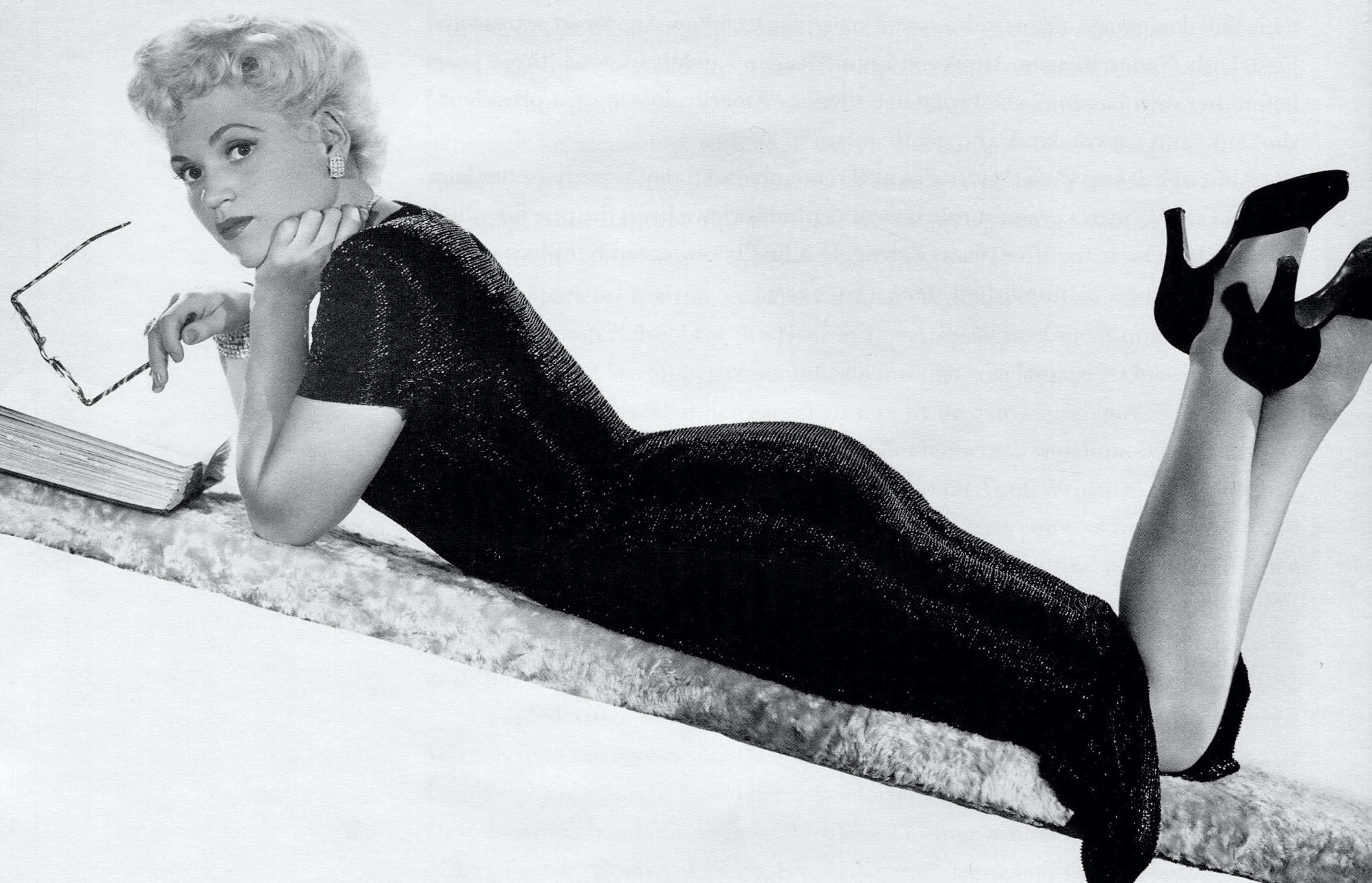
I’m just going to say it. I’m glad Judy Holliday won the Best Actress Oscar for the 1950 comedy Born Yesterday. I’m not saying she should have won—I’m not even saying I would have voted for her if I’d been a member of the Academy. But if I could have been there when the winner was announced on March 29, 1951, I would have been cheering the loudest.
Today—100 years after Holliday’s birth and 56 years and two weeks after her untimely death—Holliday’s Sea Biscuit victory over frontrunners Bette Davis for All About Eve and Gloria Swanson for Sunset Boulevard is still a topic of discussion and debate...
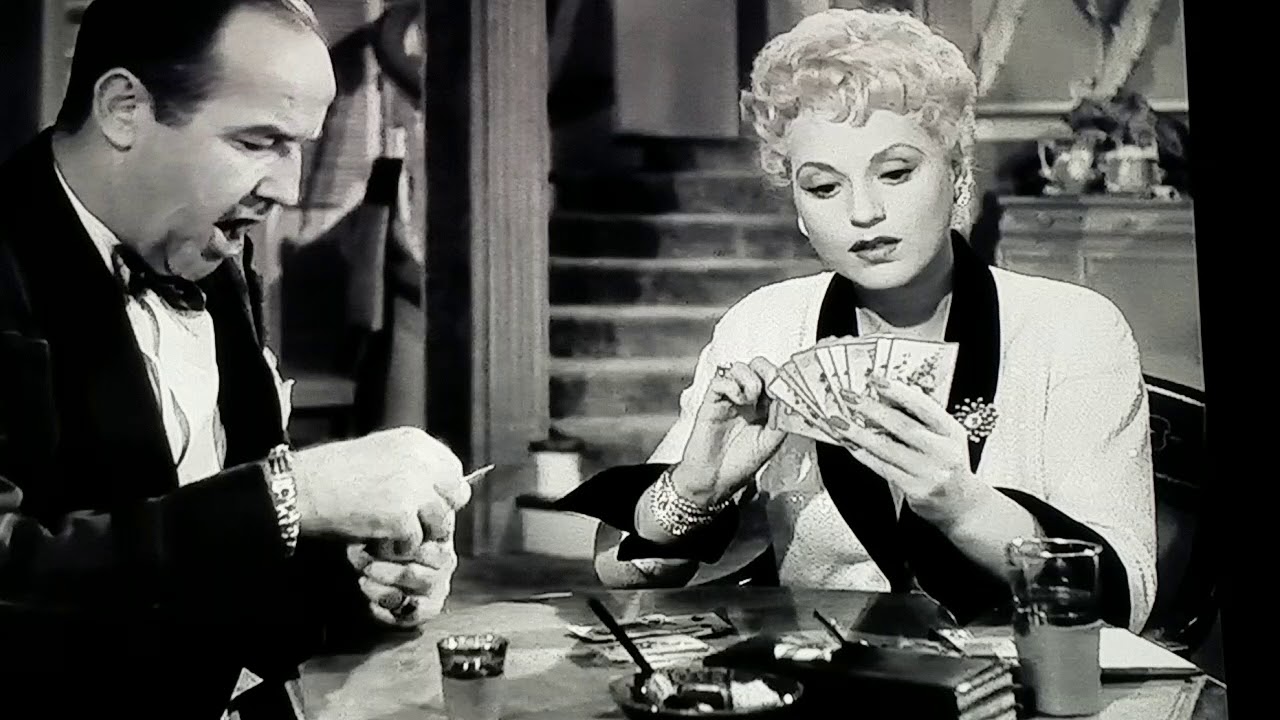 BORN YESTERDAY
BORN YESTERDAY
And yet, when awards pundits look back at the Best Actress contenders for 1950 (which also included the excellent Eleanor Parker in the too-dark-to-win prison noir Caged), most give pretty much the same explanation: Davis’s Eve costar Anne Baxter had insisted on being nominated for Best Actress instead of taking a BSA spot, which ended up splitting the vote and depriving both Davis and Swanson of potential wins. But I think the truth is more complicatted and more interesting.
Yes, it’s likely that Davis would have won a third Oscar that night if Baxter hadn’t balked, but it’s not a sure thing that Swanson was next in the running. Sunset Boulevard had a few handicaps—it was seen by many in the industry as a scandalous attack on Hollywood, and films with noir and horror elements rarely take home acting honors to this day. Meanwhile, Born Yesterday had been a feel-good Broadway hit about Washington corruption and Constitutional integrity that was miraculously both a sop to and a critique of McCarthyism, making just about everyone happy. So the film adaptation gamely played into the Academy’s already-entrenched penchants for honoring message pictures and for basking in the vicarious glow of celebrated plays.
What’s more, four weeks earlier—on February 28, 1951—Holliday had also become the first person ever to win a Golden Globe for Best Actress in a Comedy or Musical. You could almost call Holliday the Olivia Colman of her day: an offbeat critical darling with a solid track record of comedic and dramatic performances, recognized by the Hollywood Foreign Press and then the Academy for a mainstream breakout under a director she’d previously worked with (George Cukor in Holliday’s case, Yorgos Lanthimos in Colman’s). And for their surprise victories, each of those actresses had to endure serious side-eye from an Oscar-deprived Hollywood veteran who’d played Norma Desmond at one time or another.
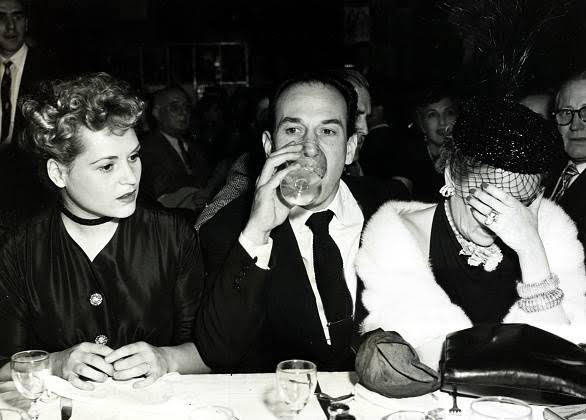 Holliday, José Ferrer, and Gloria Swanson on Oscar night together
Holliday, José Ferrer, and Gloria Swanson on Oscar night together
I have to admit, though, Born Yesterday is no Sunset Boulevard. Viewed outside of its historical moment, it can look like a pat Pygmalion story with a dash of cringy American exceptionalism. But Holliday is a delight as Billie Dawn, the showgirl mistress of a corrupt junkyard tycoon, and it’s exciting to see her acclaimed stage performance (mostly) captured on film; in order to please Columbia’s brutish studio head Harry Cohn—who publicly referred to Holliday as “that fat Jewish broad”—she was forced to bleach her hair, go on a crash diet, and lean into Billie’s cartoonier qualities. (The actress Jean Hagen would emulate this performance for years, both when she took over the role of Billie Dawn on Broadway and again in 1952 as the chalkboard-voiced starlet Lina Lamont in Singing in the Rain. This had the unfortunate effect of confusing Holliday and Hagen in some moviegoers’ minds, both then and now.)
Holliday was a unique movie presence who deserves to be better known today. A true genius with an IQ of 172, she was a whiz at sliding in seconds from bubbly one-liners to pathos in comedies, dramas, and musicals. In her standout supporting role in Adam’s Rib (1949), she’s on trial for shooting the husband who’s been two-timing her (with Jean Hagen, of all people), with Katharine Hepburn as her defense attorney. In The Marrying Kind (1952), her strained marriage to Aldo Ray is brought to the breaking point by the loss of their son. In It Should Happen to You (1954), she plays a proto-influencer who pays to have her name painted on billboards all over Manhattan and is perfectly paired with Jack Lemmon in his first major role. Her versatility and big-hearted charisma shines through in all of these performances, and it’s easy to see why Cukor and screenwriters Garson Kanin and Ruth Gordon were drawn to working with Holliday across multiple projects. It’s also easy to see why she’s been named as a personal favorite by Tilda Swinton, Catherine Deneuve, Shirley MacLaine, Winona Ryder, Mia Farrow, and Madonna.
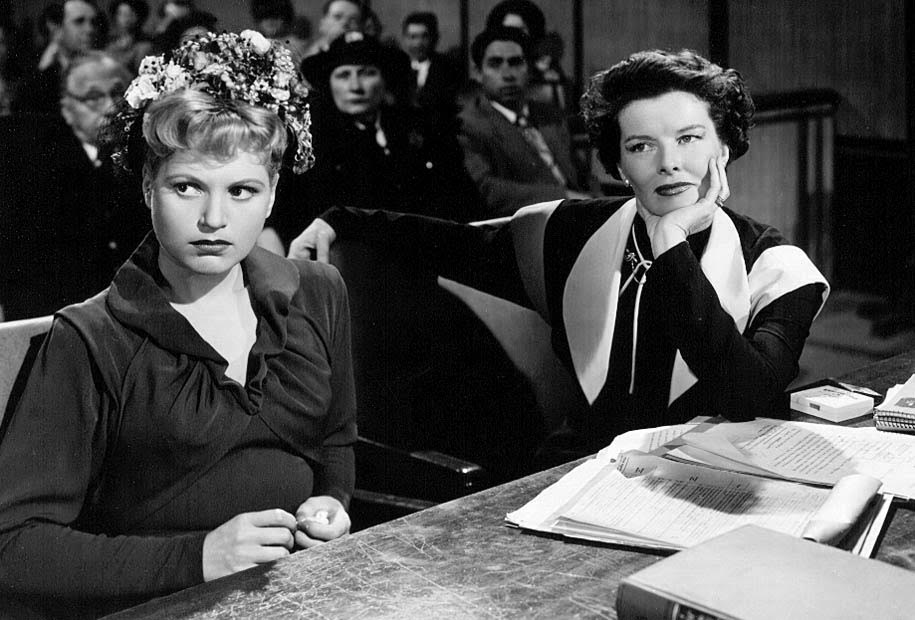 ADAM'S RIB with Katharine Hepburn
ADAM'S RIB with Katharine Hepburn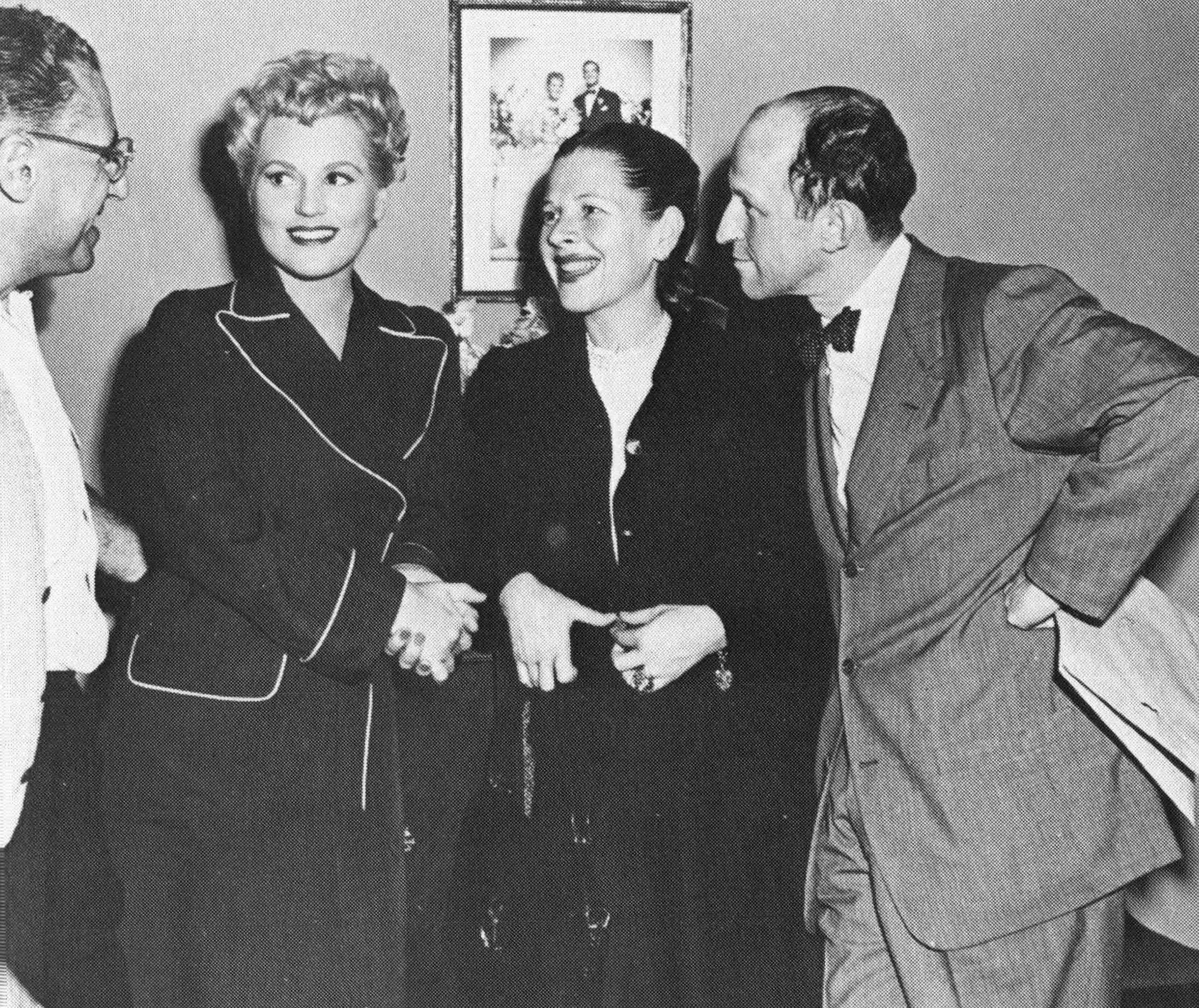 on the set of MARRYING KIND with George Cukor left, and the screenwriters, right (yes, that's future Best Supporting Actress winner Ruth Gordon!)
on the set of MARRYING KIND with George Cukor left, and the screenwriters, right (yes, that's future Best Supporting Actress winner Ruth Gordon!)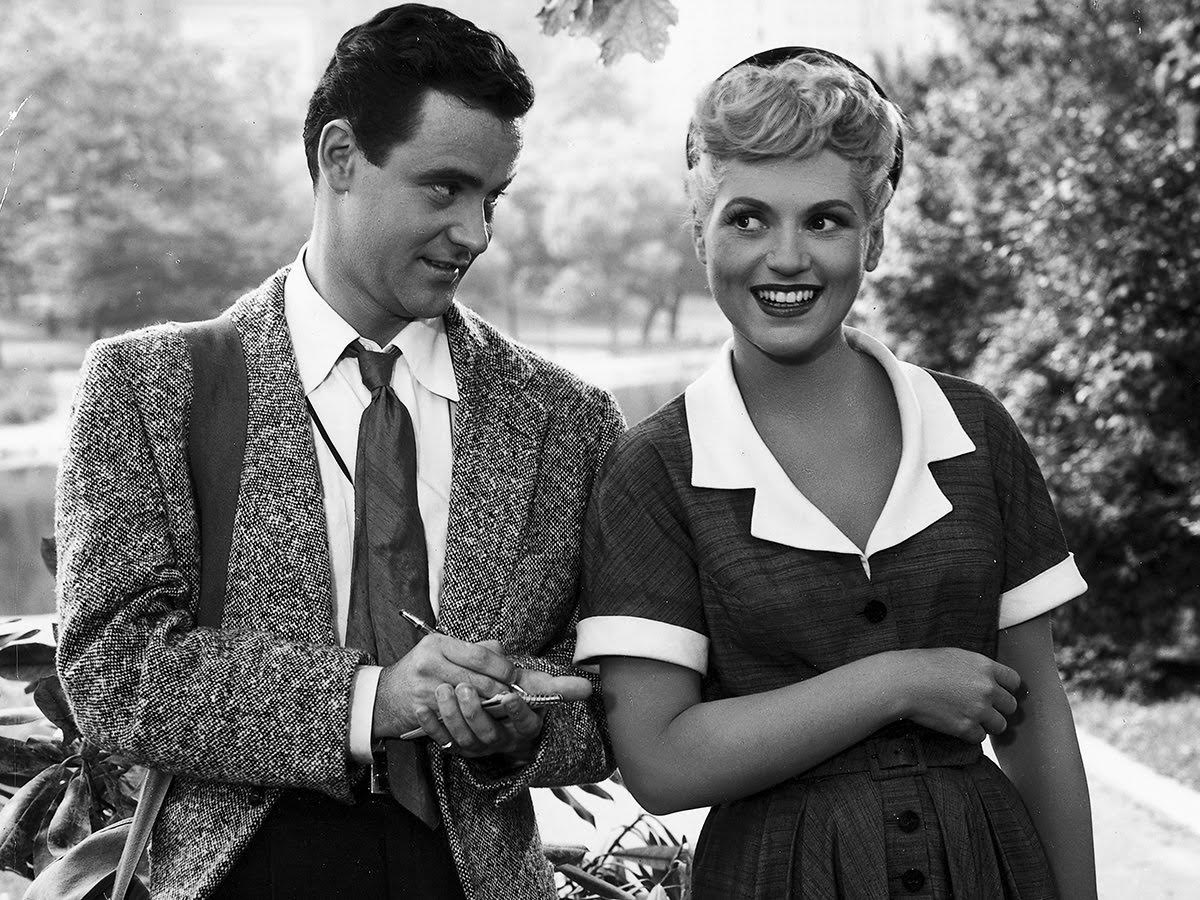 IT SHOULD HAPPEN TO YOU with Jack Lemmon
IT SHOULD HAPPEN TO YOU with Jack Lemmon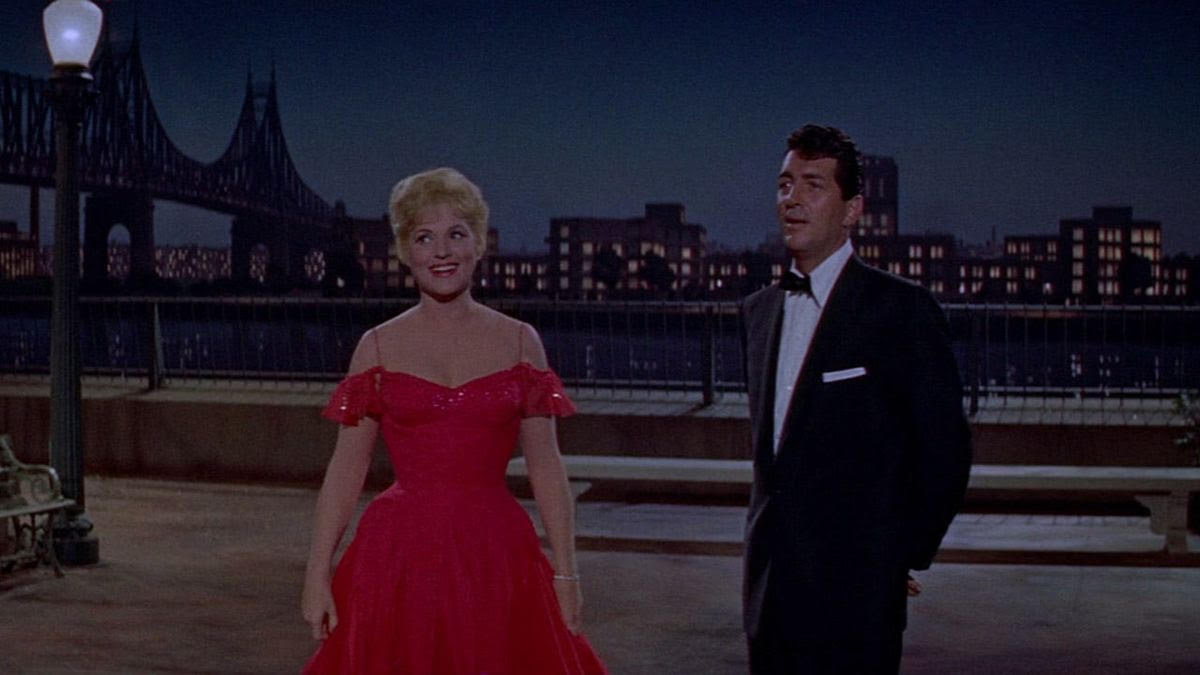 BELLS ARE RINGING with Dean Martin
BELLS ARE RINGING with Dean Martin
A brief glance at Holliday’s life reveals even more to love about her. She was close friends with Patricia Highsmith when both were in high school; it was the brainy Judy who introduced her friend Pat to the writing of Marcel Proust, whose moody influence shows up all over Highsmith’s novels Strangers on a Train, The Talented Mister Ripley, and The Price of Salt, the last of which would one day become the basis for the film Carol (Holliday herself had romantic friendships and relationships with both women and men throughout her life). After high school, Holliday got a job as a switchboard operator in Orson Welles’s Mercury Theater, and long before Hollywood called, she was an extra in the director’s pre-Citizen Kane first film, a 1938 short with the tantalizing title Too Much Johnson.
Eighteen years later, the writing team Comden and Green wrote the book and lyrics to the Broadway musical Bells Are Ringing, about a big-hearted answering service operator, specifically for Holliday; she won a Tony and duetted with the boozy crooner Dean Martin in the film version. Towards the end of her life, Holliday even recorded a jazz vocal album with accompaniment and arrangement by sometime boyfriend Gerry Mulligan, with whom she also cowrote the titular theme song for the 1965 film A Thousand Clowns. And one more bit of trivia: Jonathan Oppenheim, her only child, was the editor of the classic documentary Paris Is Burning (1990) and worked on several other acclaimed docs, too, including Oscar nominees Children Underground (2001) and How to Survive a Plague (2012).
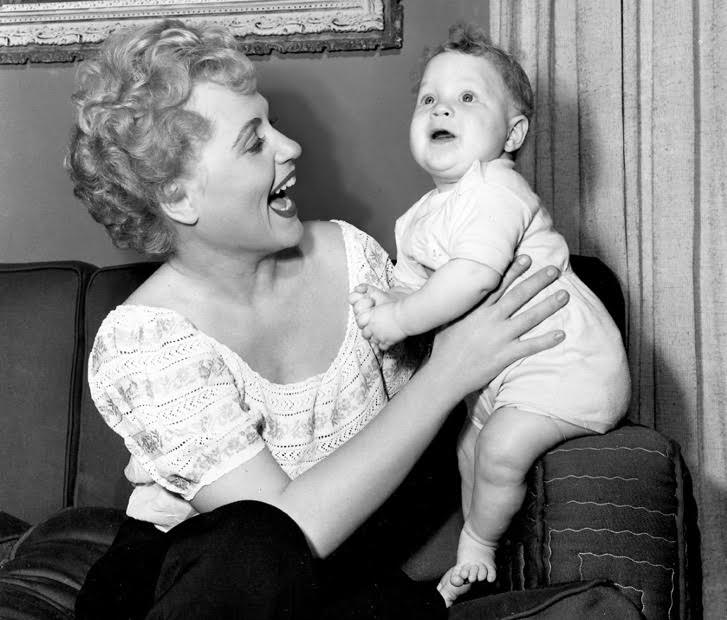 with her son, future film editor Jonathan Oppenheim
with her son, future film editor Jonathan Oppenheim
Holliday’s life was tragically cut short on June 7, 1965, two weeks short of her 44th birthday, after a string of setbacks including anti-Semitic blacklist threats followed by battles with both breast and throat cancer. I’m convinced that had she lived longer, she would have scored even more Academy nominations, which would make me more willing to side with those who insist Davis or Swanson should have won in 1951. Given how things turned out though...
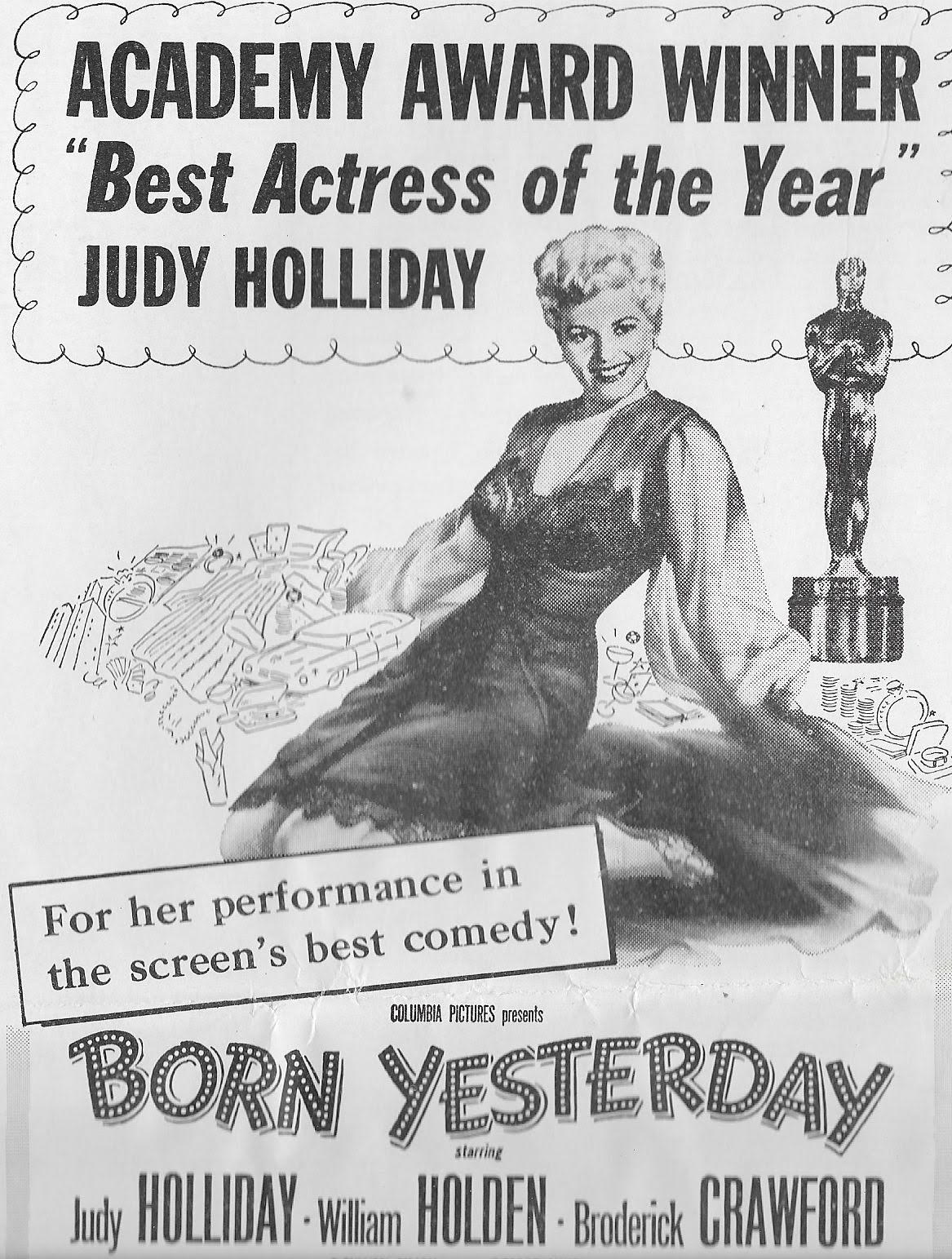
Had she not won, it’s likely that even more people would dismiss Holliday today as “that ditzy blonde from Born Yesterday” or, even worse, “that starlet from Singing in the Rain.”
To put this all another way, my mind knows the Oscar should have gone to Davis or Swanson, but my heart rejoices that it went to Holliday. I definitely understand if you disagree with me. And to be honest, whoever you think should have won that year, I’ll sort of agree. Unless you say Anne Baxter.